Anxiety relief: 7 management techniques to help you cope
Ali Roff Farrar discusses the best management techniques for anxiety relief...
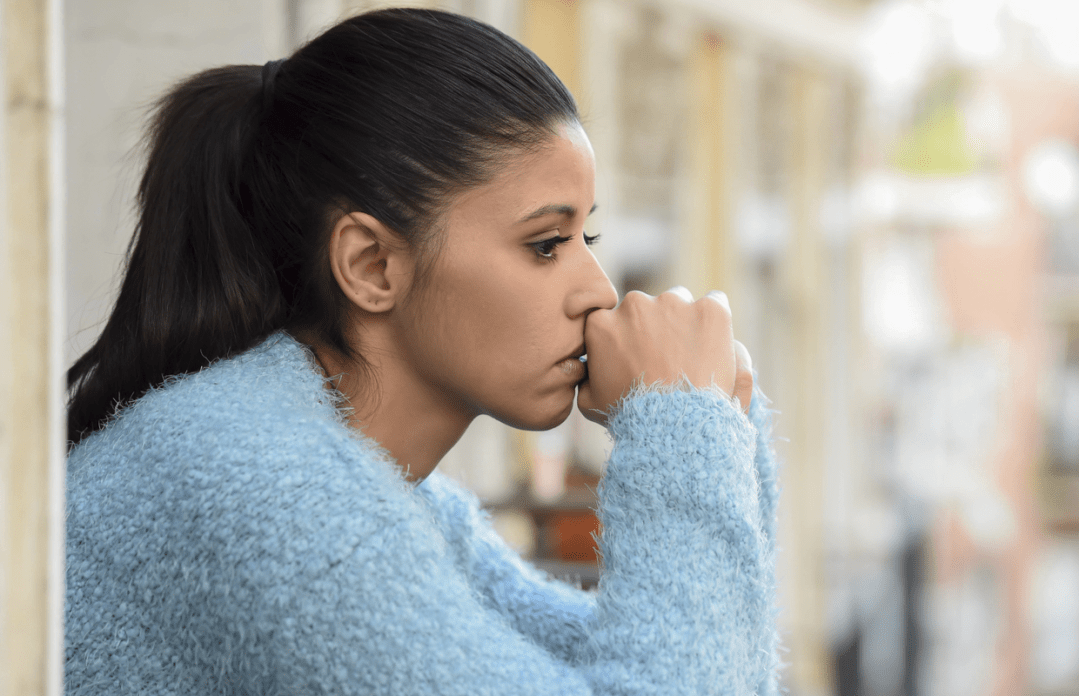
Approximately eight million people in the UK experience some form of anxiety and it is considered one of the most common psychiatric disorders. It is perfectly normal to feel fearful at times but anxiety is not the same as feeling stressed, which is a natural response to precarious or challenging times. Anxiety is a condition that persists, whether the cause of it is clear to you or not. However, there are certain management techniques that can help you find relief.
Our collective levels of anxiety have spiked dramatically recently, which isn’t surprising. We have been under threat from a pandemic and it is understandable that people have felt afraid.
This perpetual fear affects us on an emotional and physical level. When we are scared, the body’s fight or flight response, controlled by our sympathetic nervous system, is activated. The sympathetic nervous system is one part of the autonomic nervous system. The other is the parasympathetic nervous system, which works to slow down and relax the body’s stress response.
The good news is that we can learn to trigger our parasympathetic nervous system to reduce feelings of anxiety, lift our mood, strengthen our immune system and reduce our blood pressure.
Reframe your perception of anxiety
Sam Owen, author of Anxiety Free: How To Trust Yourself And Feel Calm (Orion, £14.99), goes one step further and suggests we might even be able to reframe anxiety as a benign force, guiding us towards our goals, health, happiness and survival.
‘Anxiety is both a mental and physical health feedback loop,’ she explains. ‘It exists because your brain is trying to alert you to a threat to your mental or physical wellbeing or survival. Anxiety is just our brain’s way of trying to keep us alive and well.’
There are myriad self-help anxiety relief practices and management techniques at our fingertips and practically a library of books we can use to discover ways of combatting anxiety and staying mentally well. However, some people struggling with an anxiety disorder may feel plagued by constant irrational fear and worry that they are unable to cope.
Even when there are no obvious external factors, sufferers of anxiety can experience some or all of the physical and emotional symptoms of anxiety (see checklist, below) and these feelings can be overwhelming, stopping us from functioning or making us behave in unusual ways.
Seeking help for anxiety relief
Those who do not suffer from anxiety may find overwhelming anxiety in others diffcult to understand. Sufferers may feel ashamed of our emotional state and hide how we feel, which can isolate us further and keep us trapped in a downward spiral.
‘Patients often talk of being told to “stop worrying”, “think positively” or “stop overthinking things”. These sorts of attitudes lead to people with anxiety concealing how they feel and not asking for the support they need and deserve,’ says NHS consultant psychiatrist Muffazal Rawala.
‘Although it is important to address our negative thoughts, anxiety is an illness from which people cannot “snap out of” – and evidence-based pharmacological and psychological treatments can be sought to alleviate the symptoms and offer recovery.’
Whether our anxiety is a long-term condition that we have to manage on an ongoing basis, a recent response to the coronavirus pandemic or another event or change in our lives, it is a real condition to be taken seriously and there is help and support available.
With the right management techniques, we can find relief from anxiety and, if self-help methods are insufficient in the short or long term, we must seek professional assistance.
Common symptoms of anxiety
Here’s a list of common anxiety symptoms…
- A churning feeling in your stomach
- Light-headedness or dizziness
- Pins and needles
- Restlessness or inability to sit still
- Headaches, backache and other aches and pains
- Shortness of breath
- A fast, thumping or irregular heartbeat
- Sweating or feeling hot
- Sleeping problems
- Grinding your teeth, especially at night
- Nausea
- Needing the toilet more or less often
- Changes in your sex drive
- Panic attacks
Try the NHS mood self-assessment at nhs.uk/conditions/stress-anxiety-depression/mood-self-assessment (it asks the questions GPs ask to diagnose anxiety or depression). For more resources, go to mind.org.uk.
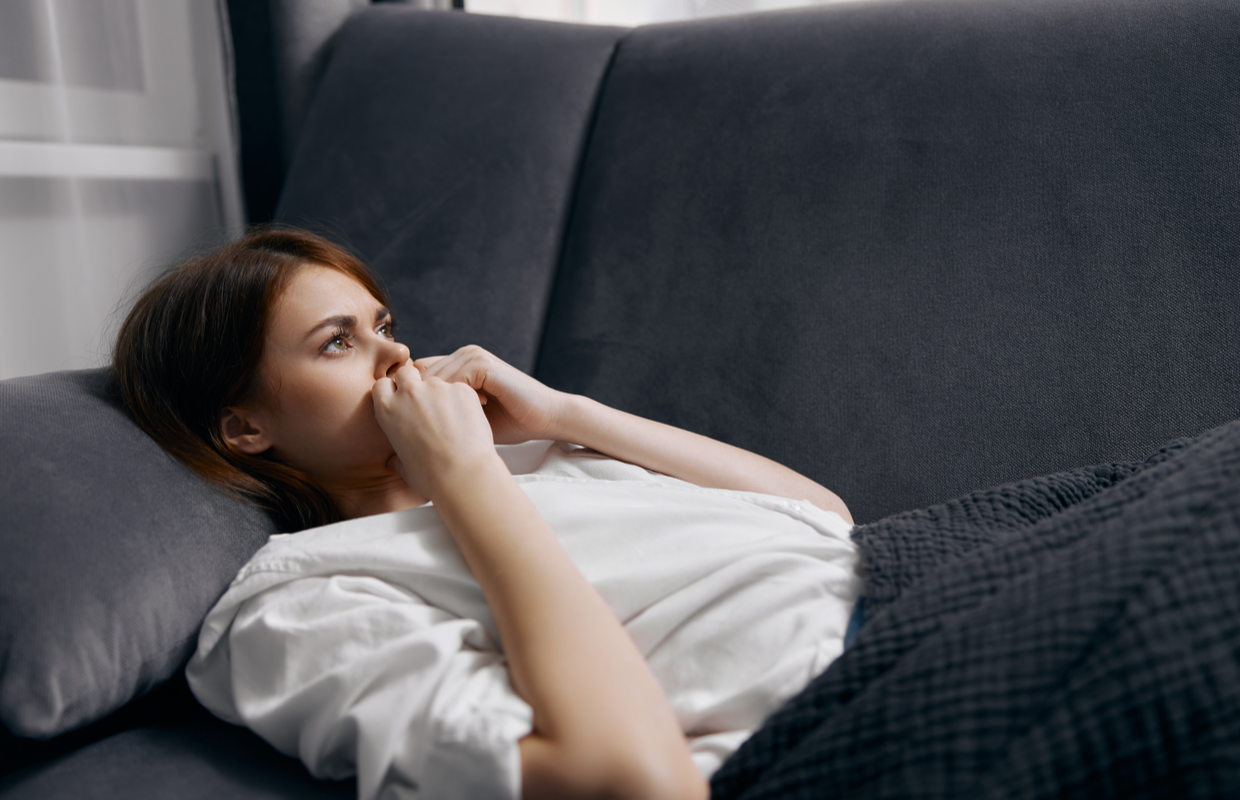
5 main types of anxiety
Author of The Anxiety Solution: A Quieter Mind, A Calmer You (Penguin, £12.99), clinical hypnotherapist and nutritionist Chloe Brotheridge, who specialises in treating people with severe anxiety, outlines the main types…
Generalised Anxiety Disorder (GAD)
Generalised anxiety disorder (GAD) can be nervousness, fear or worry. ‘Worrying is one of the major symptoms of GAD – not being able to stop worrying, and worrying about many different things,’ says Brotheridge. Physical manifestations are very common.
‘Unless they have had anxiety, people don’t realise how physical it is. GAD might mean a nervous stomach and a need to go to the toilet more frequently, shaking, experiencing surges of adrenaline and nervous energy in your body, or that you can’t keep still, sweating, problems with sleep, fidgeting and an inability to concentrate.’
Panic Attacks
For many of us, panic attacks are a physical symptom. ‘During a panic attack, we can feel as if we are having a heart attack. Many people end up in A&E because they think they are dying,’ says Brotheridge.
Post-traumatic Stress Disorder (PTSD)
Post-traumatic stress disorder (PTSD) develops after being involved in, or witnessing, traumatic events. According to the mental health charity Mind, common symptoms include vivid flashbacks or feeling like the trauma is happening again, intrusive thoughts or images, nightmares, intense distress at real or symbolic reminders of the trauma, and physical sensations, such as pain, sweating, nausea and trembling.
Obsessive-compulsive Disorder (OCD)
Obsessive-compulsive disorder (OCD) usually causes a particular pattern of thoughts and behaviour. Obsessive, unwanted, intrusive and distressing thoughts, images or compulsive urges repeatedly enter the mind, and we feel driven to perform certain acts or mental routines as we seek calm.
Social Anxiety
Social anxiety is more than shyness. ‘Social anxiety is actually a fear of judgment by other people. It can hold us back from talking to and meeting others. We might get nervous before meeting people, shaky, avoid social situations and feel intense fear.
Social anxiety isn’t necessarily a fear of crowds or people that we know, it’s usually a fear of judgment that is at the root of it,’ says Brotheridge.
Not sure if you have an anxiety disorder? Try this assessment at clinical-partners.co.uk/for-adults/anxiety-disorders/what-causes-anxiety.
7 manangement techniques for anxiety relief
We are not powerless in our fight against anxiety. These effective, proven self-help strategies and management techniques can help us take back control and find relief from anxiety…
1. Be specific
For many of us, anxiety is a nameless dread, so it’s important to investigate what’s triggering our fears, says Owen. Ask: Is it real or imagined? Is it self-generated anxiety from our thoughts; or repetitive negative thinking about ourselves and our self-image?
Or, is our behaviour actually causing the problem? Are we behaving in line with our authentic self? Are we overloaded and taking on too many tasks, or processing too much information? Or is the cause externally generated? Maybe our anxiety stems from negative relationships or a problem at work.
After identifying the cause, make a plan to overcome the threat: first, create self-serving positive thoughts that provide relief from anxiety in the moment; build positive relationships and prune negative ones; take proper self-care; and create simple, fun strategies that calm.
Next, ask goal-focused, solution-focused, empowering questions: for example, what would make me feel less anxious and more optimistic about my career? ‘Once you know what is causing your anxiety, you can take action to tackle it,’ says Owen.
Try limiting your social media consumption:
Owen suggests several strategies, including simple, easy-to-adopt management techniques such as a social media diet and learning how to breathe for a peaceful mind (inhale calm for a count of three, hold for three and exhale for three, breathing out tension).
Write down a couple of associated, specific goals, such as: spend only one hour on social media today. You can also rewire your brain to find anxiety relief by learning new things, taking some form of exercise every day and building self-care into your daily routine.
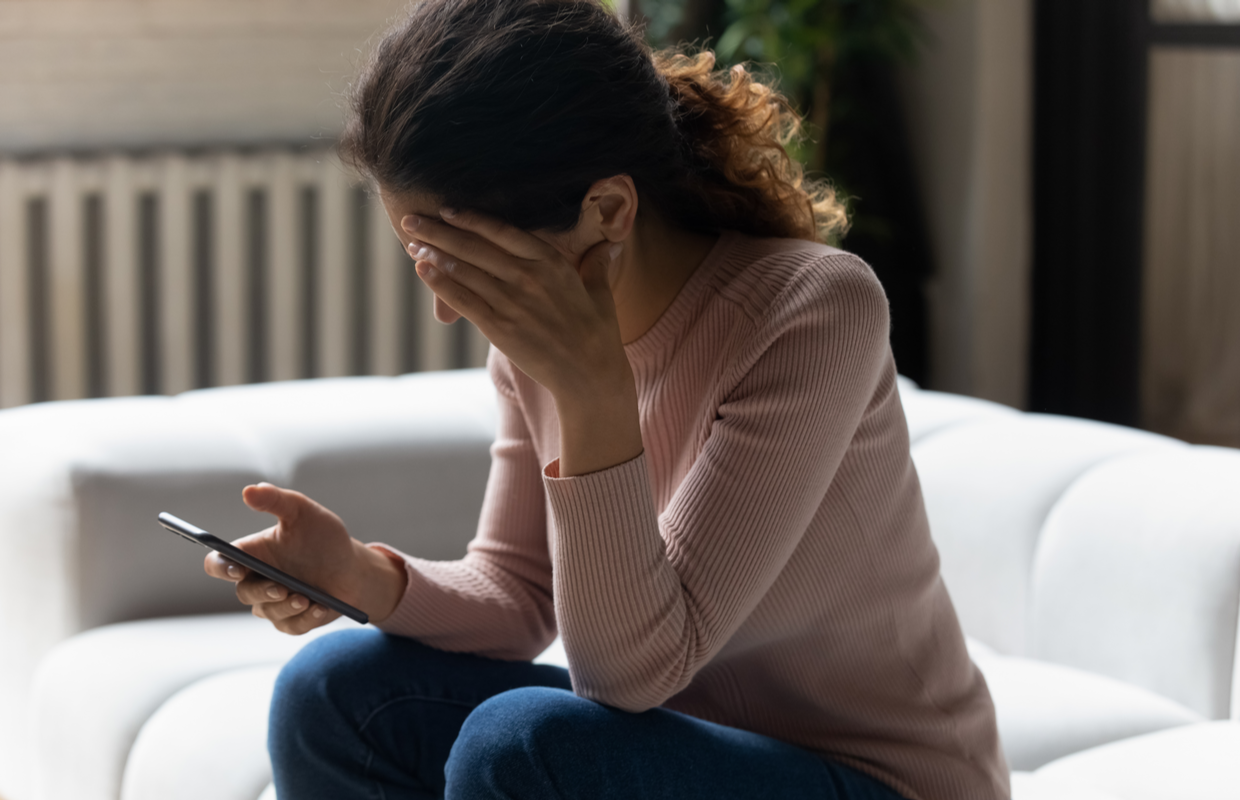
2. Beware perfectionism
Trying to do everything perfectly is a common trigger for anxiety. ‘The internet offers a bottomless pit of people with whom to compare ourselves, and can be harmful for anyone with low self-esteem. It’s tempting to go looking for inspiration and, after scrolling for hours, end up feeling like a failure.
‘The pressure of perceived perfection, whether in our careers, home, relationships or appearance, is overwhelming for many of us. The frustrating thing is that, most of the time, the pressure to be perfect is self-inflicted and doesn’t need to be there,’ says Fiona Thomas, author of Depression In A Digital Age: The Highs And Lows Of Perfectionism (Trigger, £9.99).
Starting to notice the thoughts that trigger our perfectionism can help us cultivate a new way of thinking. If we uncover that the pressures of perfectionism are fuelling our anxiety, we can use self-awareness to begin to unpick the problem, and try to manage and understand our feelings.
Try affirmations to manage your anxiety:
‘Tune in to the narrative you’ve written for yourself and listen to the little voice in your head. It can be diffcult at first, so start with affirmations and think about how your mind responds to them.
Try repeating the phrase “I don’t have to be perfect all the time” and see how you feel. Does your mind contradict that statement? Do you instantly want to believe that perfection is the only option?’ asks Thomas.
‘Another useful affirmation is “I trust that whatever I do today is enough”. It’s about being at peace with how things unfold. It doesn’t mean giving up and not trying in life, but accepting that perfection doesn’t exist and chasing it is pointless.’
3. Challenge your fears
Cognitive behavioural therapy (CBT) is a talking therapy that focuses on how our thoughts, beliefs and attitudes affect our feelings and behaviour, and teaches us coping skills for dealing with problems.
It combines cognitive therapy (examining what we think) and behaviour therapy (examining what we do), and research shows that is a highly effective management technique in treating anxiety.
Try these management techniques for anxiety relief:
Write a list of all the things that frighten you, says Susan Smith, psychotherapist, clinical hypnotherapist and co-author of I Just Want To Be Happy (Success4Life, £8.99). Then challenge each one.
‘Look at every point and ask yourself: ‘Is it true?’ Reply honestly. If it’s true, what can you do to change the situation? Write down even the tiniest thing to make a small shift. ‘The power to change is within us. Even if you’re in the worst possible situation, start to make an escape plan. Write down the steps you need to take to get out of the job, relationship or situation.
‘When you write things down, you are beginning to make a commitment to yourself to make your life better and become empowered.’ Find out more about CBT and where to get treatment at mind.org.uk. To find out more, visit thestresshacker.com.
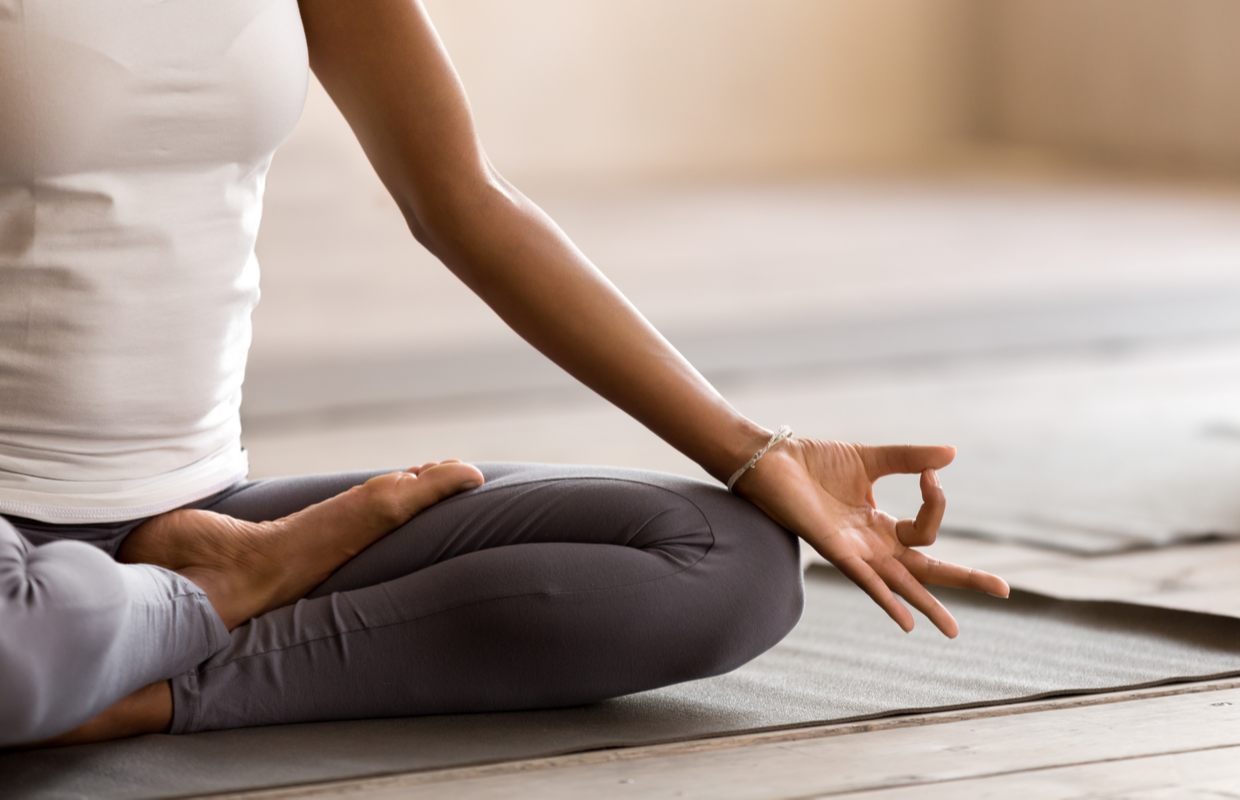
4. Heal yourself
A recent study found that hatha yoga – designed to align and calm mind, body and spirit – brought positive results for people with anxiety.* A previous study demonstrates that hatha yoga reduces anxiety more than walking.**
Researchers suggest this is due to increased levels of the brain chemical gamma-aminobutyric acid (GABA) in those who practise yoga. GABA tends to be lower in people with anxiety and mood disorders.
‘Restorative yoga takes the stillness at the heart of the practice and puts it centre stage. It takes us from the fight or flight mode of our stressful lives and allows us to settle into the parasympathetic nervous system where we might find calm.
‘It is ideal as a management technique for those seeking anxiety relief, because its long-held and deeply felt poses boost the immune system and calm the mind,’ explains Naomi Annand, yoga teacher and author of Yoga: A Manual for Life (Bloomsbury, £20).
Try this restorative yoga pose to relieve anxiety:
‘My favourite restorative pose, which I use everyday, is viparita karani – legs up the wall, resting my hands on my belly and tuning in to my breath,’ says Annand.
5. Get creative
Art therapy is an effective way to find relief from anxiety. In creating art, we are able to focus on our perceptions, imagination and feelings. An art therapist will encourage you to express your inner world and mindful art therapy has been proven to reduce anxiety.
Try art therapy to externalise your anxiety:
‘Art therapy is a simple way to externalise your anxiety and observe it instead of feeling controlled by it,’ says Smith. ‘With your non-dominant hand, draw your anxiety. Don’t worry about what your drawing looks like – no one will see it.
‘Next, with either hand, draw a picture that represents how it would feel if you could shrink and contain your anxiety. Add drawings of what you think your diminished fear would look like.’
6. Talk to someone
Research published in The Lancet Psychiatry suggests that talking therapy with someone with no vested interest can be a more successful treatment than prescription drugs, and have longer lasting effects.
‘We could all do with therapy,’ says Brotheridge. Although opening up to loved ones can ease the burden of isolation, it can be useful to talk to someone who won’t judge you, and where you won’t feel judged.’
Try talking therapy to manage your anxiety:
Talking therapy can provide a safe space to uncover a discourse around your anxiety, ‘even though it might sometimes seem overwhelming or scary to begin with’, notes Brotheridge.
‘Ask your GP what they recommend and whether they can put you on a waiting list to see a psychotherapist or counsellor,’ she urges.
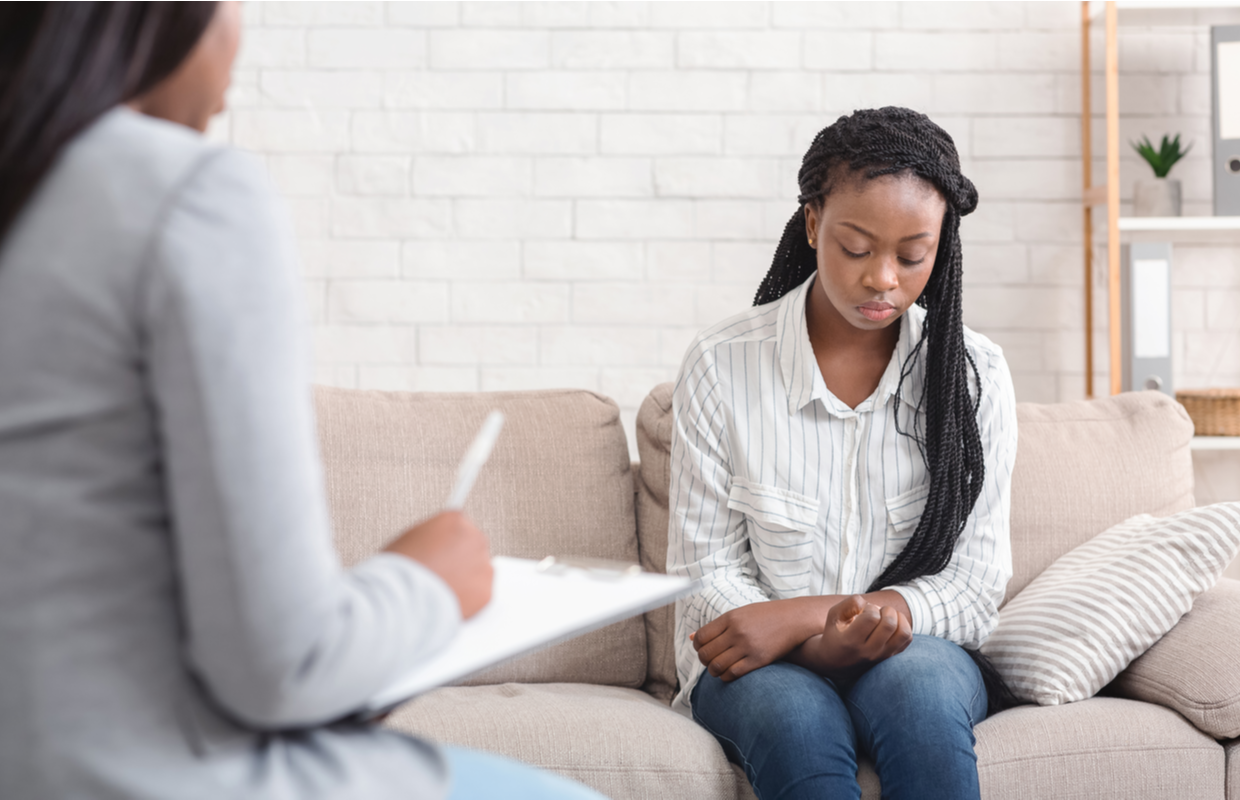
7. Take a mindful shower
Neuropsychiatrist Jeffrey Schwartz of the University of California studied and treated a group of OCD sufferers, who show unusually high fear reactions. A Buddhist, Schwartz was intrigued by therapeutic mindfulness – when you stand outside your mind, observing thoughts and feelings as if they are happening to someone else.
Working with patients with moderate to severe OCD, Schwartz showed them scans of their brains overreacting. He taught them to use mindfulness to focus on the idea that their compulsions were just misfiring brain circuitry; they didn’t need to act and were simply witnessing the arrival of an obsessive thought.
Out of 18 patients, 12 stopped their OCD behaviour. Schwartz found that their brains had changed structurally and concluded that the brain that observes itself changes itself.
Try creating a mindful morning routine for anxiety relief:
‘Anxiety is based in past memories or projected worries of the future, it has nowhere to go when you are in the present,’ says Nick Scaramanga of the Zenways mindfulness programme.
‘Meditation is brilliant but you can do anything mindfully. Try creating a morning routine where you mindfully get out of bed, brush your teeth and have a shower.
‘Slow everything down, notice the air on your skin, the water swirling around your toes, the sounds and sensations. Notice the thoughts that come and go – the trick is not to get hooked by them, but simply observe them.’ For more tips, visit zenskills.co.uk.
Real-life stories: your anxiety management techniques
‘I want to face my anxiety head on.’
Lenez Osman, 30, occupational therapy student
‘I had a parent with an addiction that I was exposed to for 27 years. My home life was unsafe and unstable. In my early 20s, my behaviour became chaotic and I self-medicated, didn’t eat well and engaged in risky lifestyle choices. At 25, I realised I did not want to live that way and needed help.
‘One-to-one therapy helped me create a narrative for my childhood story, and I became self-aware and able to recognise my emotions – but Eye Movement Desensitisation and Reprocessing (EMDR) therapy has been life-changing. It’s allowing me to tackle what happened by looking at the emotions and thoughts attached to my memories.
‘I’ve realised that I took on a lot of responsibility and I was deeply affected by feeling unsafe. I am starting to unpick that and create safety within myself. A self-care routine of running, yoga, reading inspiring books and nourishing food helps.
‘I want to continue to face my anxiety head-on. I know it won’t go away completely, but to be able to manage it would be amazing.
‘Never be ashamed to seek help’
Connie Roth, 30, publishing marketing manager and yoga teacher
‘My anxiety was linked to a period of depression that I experienced in my mid 20s. Pretty soon, I was having regular panic attacks. Honestly, they floored me. I went to my doctor, who referred me to a counsellor, and I am grateful for that every day.
‘Once I’d found the right person, talking therapy had an impact on my life in so many incredible ways. For a few months, I also turned to medication, which helped me get to a place where I felt able to work on myself. All treatments have their place, it’s just about finding what’s right for you. Life is never a straight road.
‘Now, when I need it, I have therapy to help look after myself. I also think I’m a lot more mindful, which helps. The key thing is to never be ashamed, embarrassed or think that you are in any way ‘less’. I choose to see that time in my life as an opportunity to understand what was making me unhappy and holding me back, and change it. There’s so much strength in that.
‘I am more sensitive to life than other people’
Annie Hambley, 38, mother, wellbeing writer and women’s health therapist
‘I remember feeling panicky as a child, and it got worse. In my 20s, I suffered from social anxiety and had agoraphobic episodes. It came to a head in 2012 following the tragic death of my brother and the subsequent trial and media coverage. I cut myself off and had signs of PTSD, although I wasn’t ready to accept it.
‘My parents’ concern prompted me to find a way to manage my anxiety. My therapist said something that will stay with me: ‘You are more sensitive to life than other people. But why is that a bad thing, if you can find a way to manage?’
Medication made me feel numb, so I created a holistic toolkit with rituals for daily life, and for when things got tough. Counselling myself, through journalling and blogging, plus Ayurveda and yoga help me live more in tune with nature, my constitution and emotional needs. Since accepting my anxiety, I’ve grown into a woman I am proud to be – a woman that’s more sensitive, but I’m fine with that.




